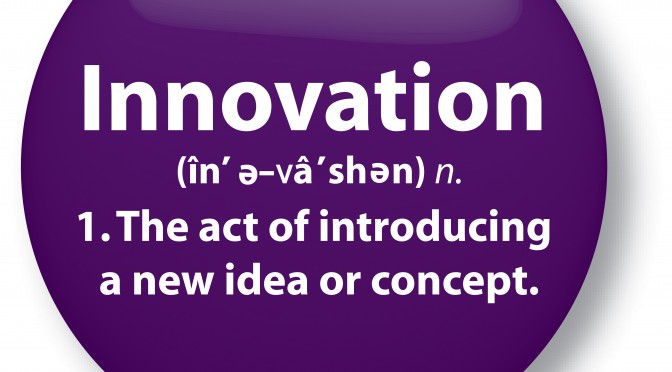Innovation in the long-term care setting can take many forms. It can be a novel technology, an inventive volunteer program, or an innovative training class. No matter what the offering is, the willingness to try something new to benefit elders in the long-term care setting is always worth attempting.
In exploring new, innovative projects in the long-term care setting, there can be two types of adopters: early and late. Those communities who are early adopters want to be the first to try something new. They are not afraid of risk or to make mistakes. They will test new approaches and identify ways to refine the process as needed, developing best practices to help build upon lessons learned.
Bringing a new, innovative project into the long-term care setting can also provide a competitive advantage by distinguishing a community as one that offers services that other communities do not. Elders, families, and staff will recognize the community’s commitment to trying new concepts and projects to enhance and improve resident care and quality of life.
The drawbacks in being an early adopter can include the emergence of unknown, unexpected costs to make changes and adaptations to test a new, unknown project. There are also risks involved, especially in the potential unknown effects on residents and staff of a new project. Additionally, the implementation of a new, untested project can affect the workload of employees who are likely already over-burdened while being asked to try a new project.
There are also benefits and drawbacks in being a late adopter. By adopting a project or idea late, the existing kinks likely have been worked out, making it easier to implement and potentially less costly to undertake. The benefits for implementing a project may be well known by the time a late adopter brings it to the community which may make the implementation process more worthwhile. Drawbacks to adopting late include the delay in providing elders with the benefits of an innovative program. Further, there may be more costs to elders that might have been avoided if the program had been attempted.
Despite the benefits and challenges in being an early or late adopter, there are some programs which are beneficial to adopt early. The National Partnership to Improve Dementia Care in Nursing Homes (Partnership) works to improve the quality of care for individuals with dementia who live in nursing homes. Part of the Partnership’s mission includes a focus on addressing the amount of antipsychotic medications individuals with dementia are prescribed. According to a memo from the Centers for Medicare & Medicaid Services’ Center for Clinical Standards and Quality/Quality, Safety & Oversight Group , from 2011 to 2018, there has been a national decrease of nearly 40 percent (38.9) in the number of nursing home residents receiving an antipsychotic medicine; however, more work can be done to reduce the use of antipsychotic medications in nursing homes.
As recently as December 2017, there were 1,500 nursing homes identified by the Partnership as late adopters, which are nursing homes with a sustained high or relatively unchanged rate of antipsychotic medication use, or their antipsychotic medication usage continued to be above average without a high percentage of schizophrenic elders in the nursing home.
In order to address these findings, the Centers for Medicaid and Medicare Services (CMS) is providing technical assistance and support to late adopters. There will be enhanced oversight and enforcement actions to support these nursing homes in addressing their high rate of antipsychotic medication use. These strategies will be useful in helping these nursing homes implement the changes and strategies needed to address the rate of antipsychotic medication use. The return on that investment of time and personnel to implement programs like those can be significant, in terms of improving elder care, which is always worth attempting, whether early or late.
Kathy Dreyer, Ph.D., is the Director of Strategic Projects at AGE-u-cate® Training Institute, which develops and delivers innovative research-based aging and dementia training programs such as Dementia Live® and Compassionate Touch®, for professional and family caregivers; kathy.dreyer@ageucate.com
